Have you ever stopped to think about what it is that you breathe indoors? Honestly, these places probably contain the ills suffocated by air dust, pollen, pet dander, mold spores, and blue smoke- various associations with various health conditions. Headaches, sneezing, discomfort in sleeping in addition to breathing difficulties- it might be the air at home doing this. That’s where air filters and air purifiers come into play—but before rushing to buy anything, it’s important to understand how they work, how they differ, and which might suit your needs best.
In this article, you will get to learn about the differences between an air filter and an air purifier, their respective mechanisms, and which one is better suited to your indoor environment.
Why Indoor Air quality deserves more attention?

Most people concern themselves with an air pollution outdoors; one needs to note, however, as said in the report by the EPA (Environmental Protection Agency) that often, the air indoors can be more polluted by two to five times than that of the outdoors. Indoor air pollution could well be even worse under certain conditions, especially in poorly-ventilated houses or with an overwhelming concentration of contaminants.
Some common examples of indoor pollutants include:
-
Dust mites and animal dander
-
Mold and mildew
-
Smoke (from burning or wildfire)
-
Chemical fumes from cleaning products or paints
-
Volatile Organic Compounds
-
Microorganisms like bacteria and viruses
If you start getting more allergic reactions or having trouble breathing at home, check your indoor air quality, as it may be to blame. Thankfully, there are tools available that can help improve your home’s air—but the key is knowing what your space actually needs.
Air Filters vs. Air Purifiers: What Are the Differences?

Choosing between these tools requires knowing the nature of the air in your home. Is your concern mostly dust and allergies? Or are you dealing with smoke and chemical odors?
Air filters and air purifiers enhance air quality indoors, but they do so in markedly divergent fashions. Their fundamental differences are analyzed.
Air Filters
Air filters are passive devices designed to trap airborne particles as they flow through them. They are usually part of HVAC systems, although standalone versions do exist for more targeted filtration.
How they work: Air filters trap physical particles, including dust, pollen, and pet hair. They accomplish this with;
-
HEPA filters-90.97% capture tiny particles.
-
MERV-rated filters-commonly used in HVAC systems for general filtration.
-
Pre-filters-capturing larger particles (such as pet hair).
Best for-Reducing airborne debris and dusts and allergens in larger rooms.
Air Purifiers
Air purifiers come in even fancier varieties than those that incorporate additional purification technologies. They include filters with technologies like UV light, activated carbon, or ionizers that can target microscopic pollutants and odors.
How they Work: In addition to trapping particles, air purifiers neutralize and remove:
-
Odors and smoke
-
Bacteria, molds, and viruses
-
Chemical gases and VOCs
Best For: Odor removal, target tiny pollutants, and microbes.
Quick Comparison: Air Filters vs. Air Purifiers
|
Feature |
Air Filter |
Aur Purifier |
|
Functions |
Traps physical particles |
Cleans air using filters and additional technologies |
|
Target |
Dust, dander, pollen |
Smokes, microbes, odors, VOCs |
|
Common technology |
HEPA, MERV filters |
HEPA, UV lights, ionizers, carbon filters |
|
Best for |
Allergies, dust controls |
Sensitive lungs, smoke, chemical exposure |
|
Ideal space |
HVAC systems, crawl spaces |
Bedrooms, living rooms, and offices |
When to Choose an Air Filtration System

If your primary issue is dust, dander, or visible airborne debris, an air filtration system may be what your home needs most.
Suppose your residence collects visible dust, has an inadequately ventilated basement, or contends with pet dander; in that case, you should consider an air filtration system as an ideal candidate. The systems are ideal for reducing larger particles suspended in the air.
Best for:
-
basements or crawl spaces with poor ventilation
-
Garages or workshops subject to circulating dust and debris
-
HVAC systems needing extra protection against contaminants
At Abestorm, we design industrial air filtration systems tailored for high-volume air cleaning while remaining compact and energy-efficient. These are apt for homeowners seeking cleaner air and greater efficiency from their HVAC system.
Pro Tip: Enhance airflow and moisture reduction by operating a basement exhaust along with the filtration system.
When to Choose an Air Purifier
If your main concern is eliminating odors, fine smoke particles, or chemical pollutants, air purifiers are worth considering. These are especially helpful for households dealing with asthma, allergies, or lingering smells.
Air purifiers elevate air quality standards by eliminating quite an array of unpleasant odors, smoke, and other scarcely visible pollutants. In a wildfire area prone to land fires or in situations when sustained odors plague the home environment, an air purifier comes in handy.
Best suited for:
-
For persons suffering from asthma or some other respiratory conditions
-
Homes close to wildfires and/or busy roads
-
For the removal of odors, be it from pets, cooking, or cleaning products
-
For mold spores and airborne bacteria
Air purifiers provide multi-stage filtration generally involving:
-
HEPA filtration to collect airborne particles
-
Activated carbon for gas and odor adsorption
-
UV lights or ionizers to neutralize microbes
Can you use them in conjunction? Yes!
You don’t always have to choose one or the other. In many homes, combining both systems offers a more complete solution.
To create the best air quality in your home, one would want both air filters and air purifiers together for the most holistic solution.
Here are some tips to use them together:
-
Install a filtration system in the basement or attic for large particles, such as dust and dander.
-
Set up portable air purifiers in your living spaces or bedrooms for fine pollutants such as smoke and volatile organic compounds (VOCs).
-
Install an exhaust fan in the basement for circulation and humidity reduction.
By combining these systems, you protect every inch of your home with a concentrated 360-degree air-cleaning approach.
Other Tools to Consider: Air Scrubbers & Exhaust Fans
Air scrubbers provide a perfect professional grade air appliance for removing:
-
Chemical fumes
-
Mold spores
-
Smoke and gases
The air scrubbing devices from Abestorm come with a unique combination of HEPA filtration, activated carbon, and UV sterilization, making them compatible with renovation projects, fire damage restoration, or permeating musty air. Combine it with a basement exhaust fan to constitute a very powerful unit to keep the air fresher, dryer, and cleaner.
Pick What Your Home Needs
Both air filters and purifiers are important to improve the indoor air quality. The key is understanding what option, and or combination, would most benefit your home.
Choose an air filtration system if:
-
Reducing visible dust and allergens is the goal
-
There is ventilation about basement or crawl space problems
-
You want a more economical way to capture large air particles.
Choose an air purifier if:
-
There are asthma, allergies, or sensitivity to chemicals.
-
States the need to remove odor, smoke, or VOCs.
-
Wants to neutralize bacteria and airborne microbes.
Or, have both for a powerful and comprehensive air-cleaning solution.
Why Choose Abestorm?
We at Abestorm believe in clean air well-being and not as an added luxury. We offer: Industrial-grade air filtration systems for homes, super-clean and healthy environments, power air scrubbers, energy-efficient exhausts to improve airflow in basements, garages and crawl spaces. All products compact and user-friendly, all designed for durability. Whether you're filtering the dirt away or struggling with wildfire smoke, we have the solution for you much in relation to your space.
FAQs
Q: Is air filter enough for smoke or odor?
No, because filter is meant to capture particles. For effectively removing smoke and odors, an air purifier with activated carbon is suggested.
Q: How often should I change filters?
Filters should generally be changed every 1 to 3 months, depending on your system and home air quality.
Q: What is the best system for basements?
For basements, the most suitable solution would be a combo of an air filtration unit and basement exhaust fan, which is best for managing dust, moisture, and musty odors.
Q: Can I use air filters and purifiers together?
Yes! The combination of the two systems provides total protection, especially for houses with pets, children or in places where someone suffers from respiratory problems.
Call to Action
Your home deserves better air—why settle for less? Whether you're tackling dust, dander, or something more serious like wildfire smoke, the right solution is out there.
Make the difference in your area by investing in an ideal air filtration or purification solution. Check out the best-rated air filtration systems and air purifiers online today and start improving indoor air quality in your home. If unsure which option is right for you, contact us for personalized recommendations!

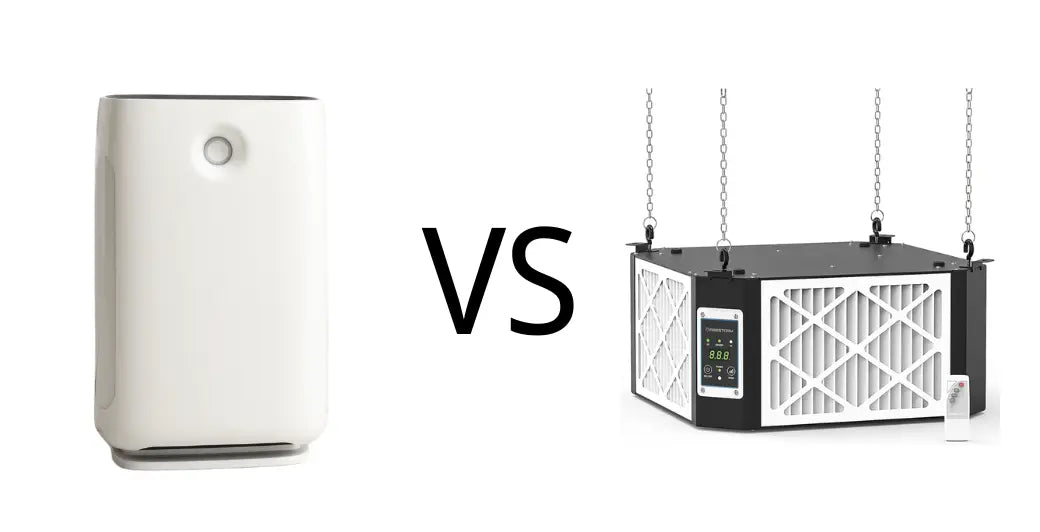
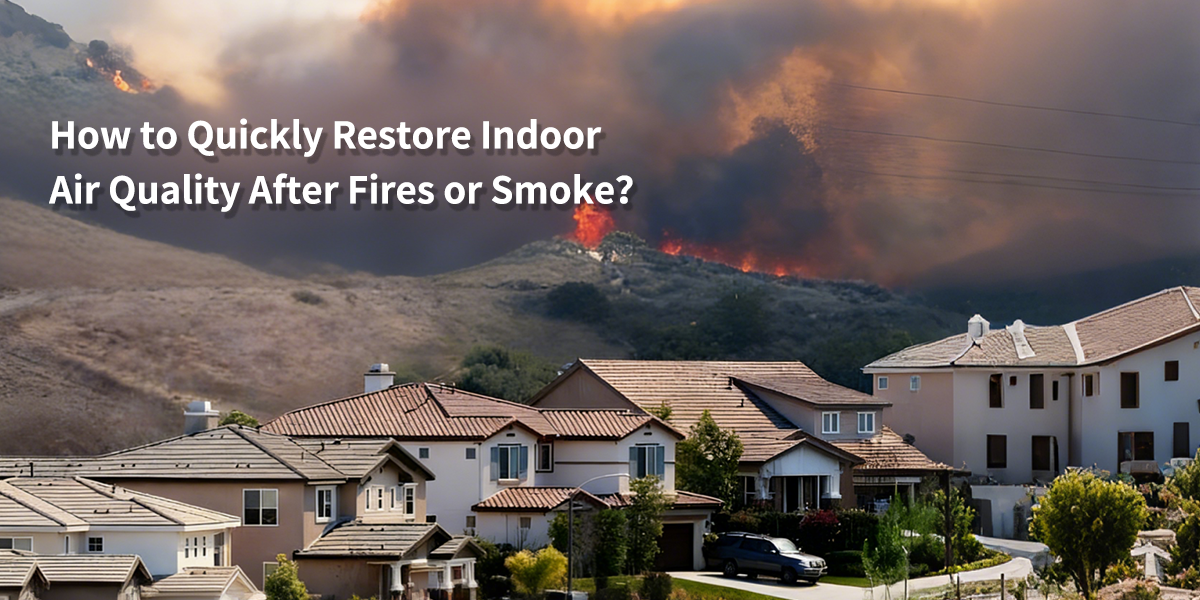
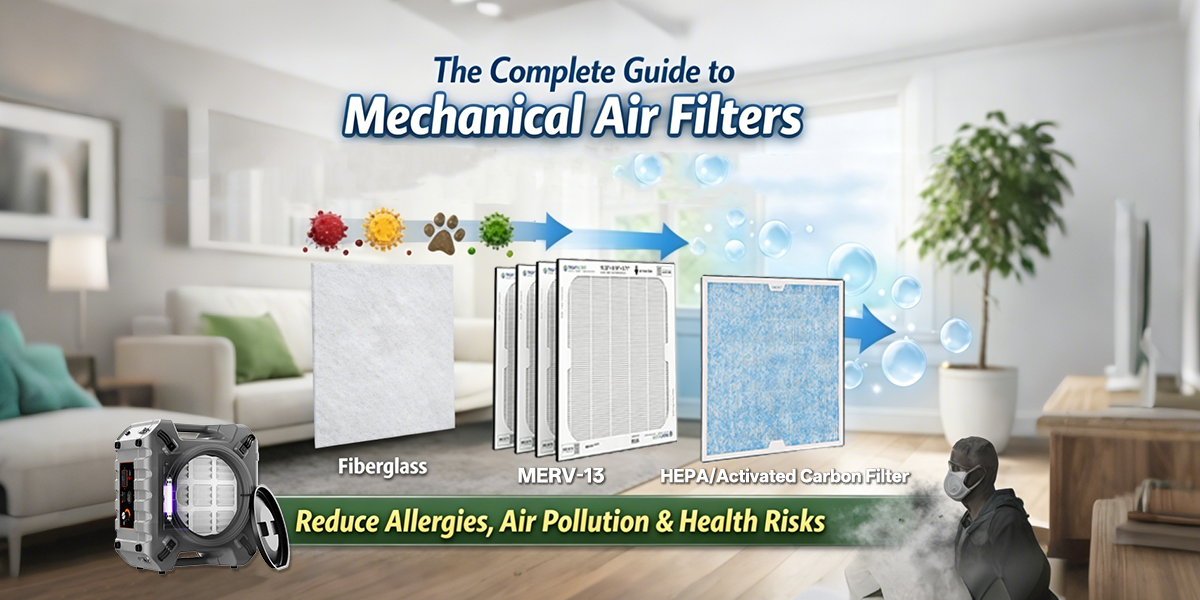
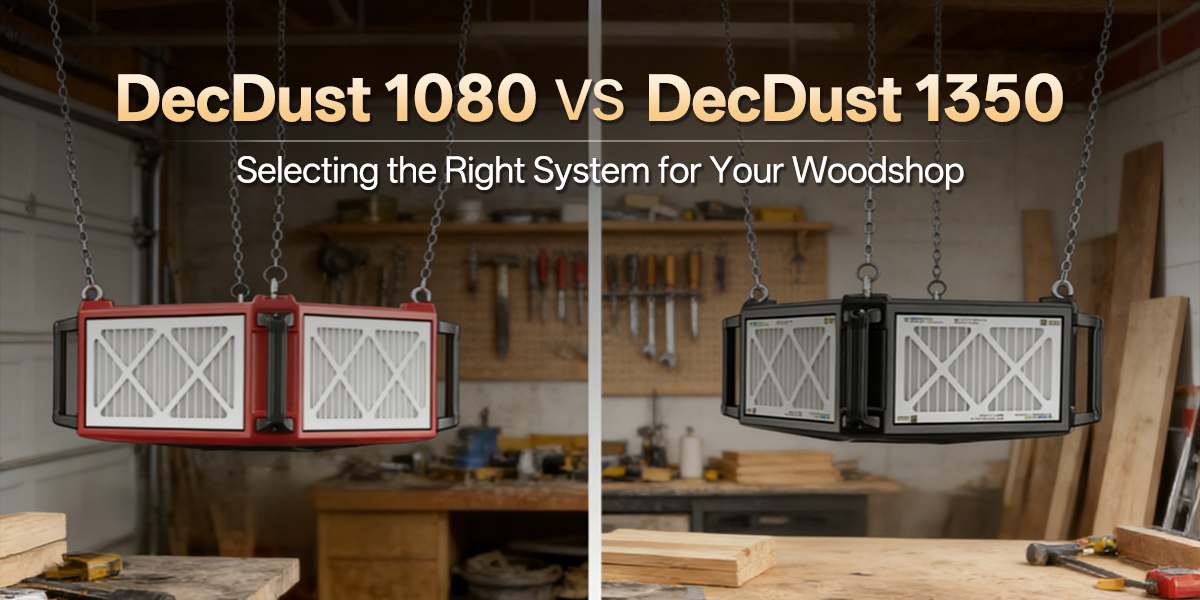
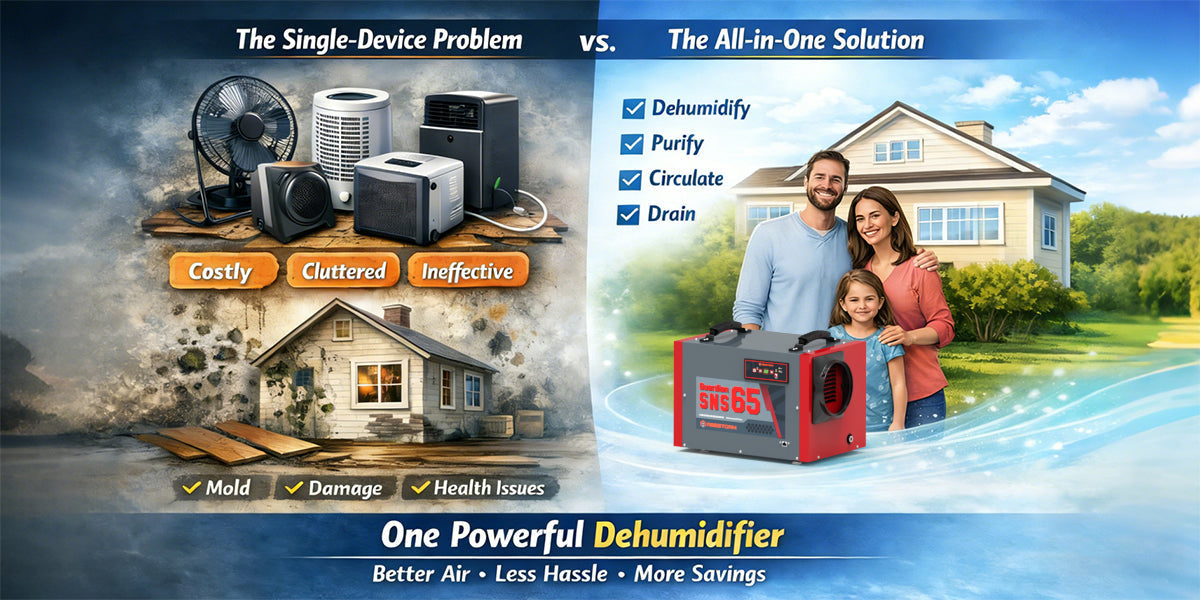
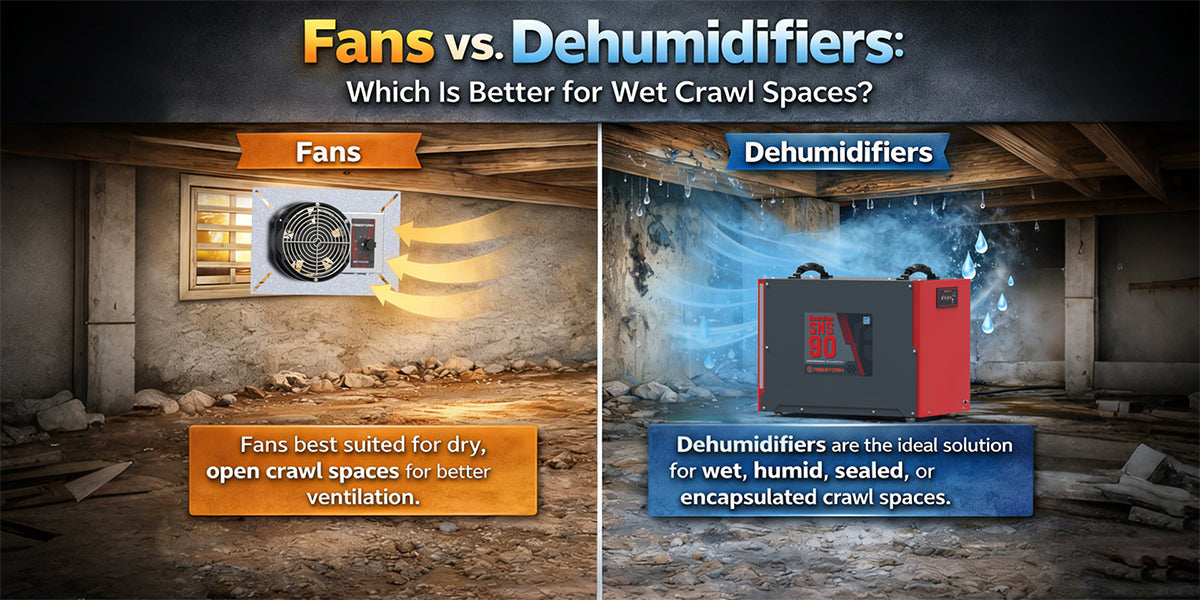
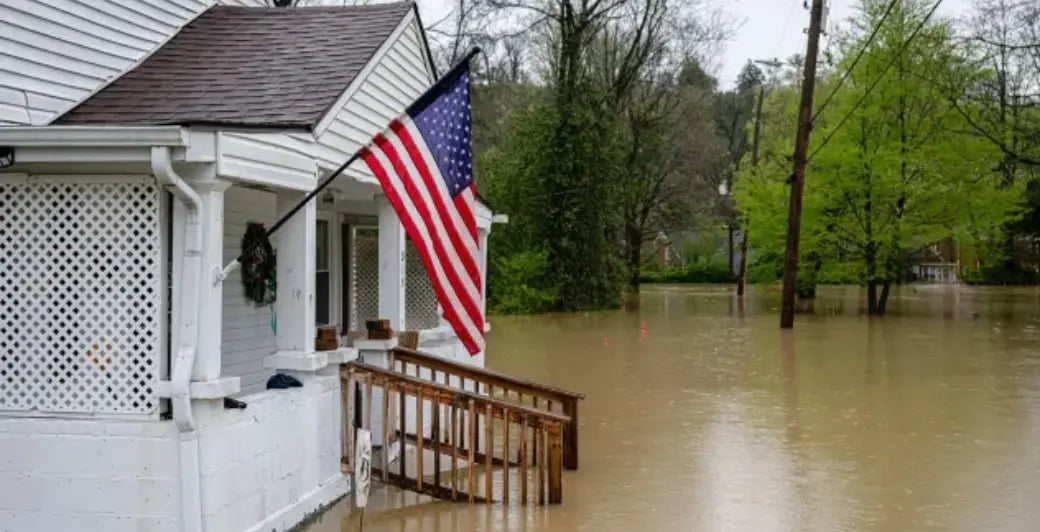
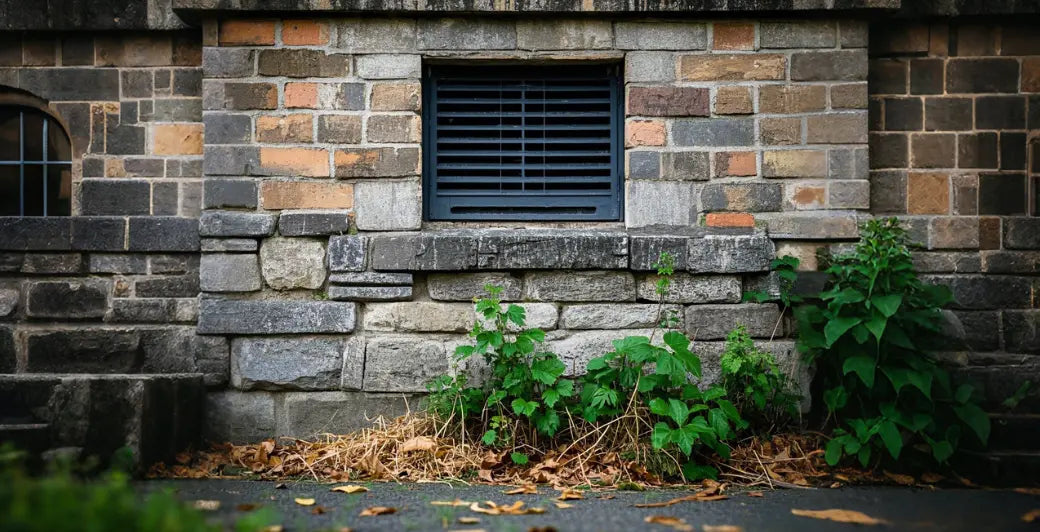
Shop For Dehumidifier
Abestorm 170 PPD 2,100 Sq.Ft Commercial Dehumidifier with Pump and Drain Hose | Hurricane 800
Abestorm 180 PPD 2,300 Sq.Ft Commercial Dehumidifier with Pump and Drain Hose | Hurricane LGR85
Abestorm 264 PPD 3,000 Sq.Ft Commercial Dehumidifier with Pump and Drain Hose | Hurricane 125P
Abestorm 180 PPD 2,300 Sq.Ft Commercial Dehumidifier with Pump and Drain Hose | Hurricane 850